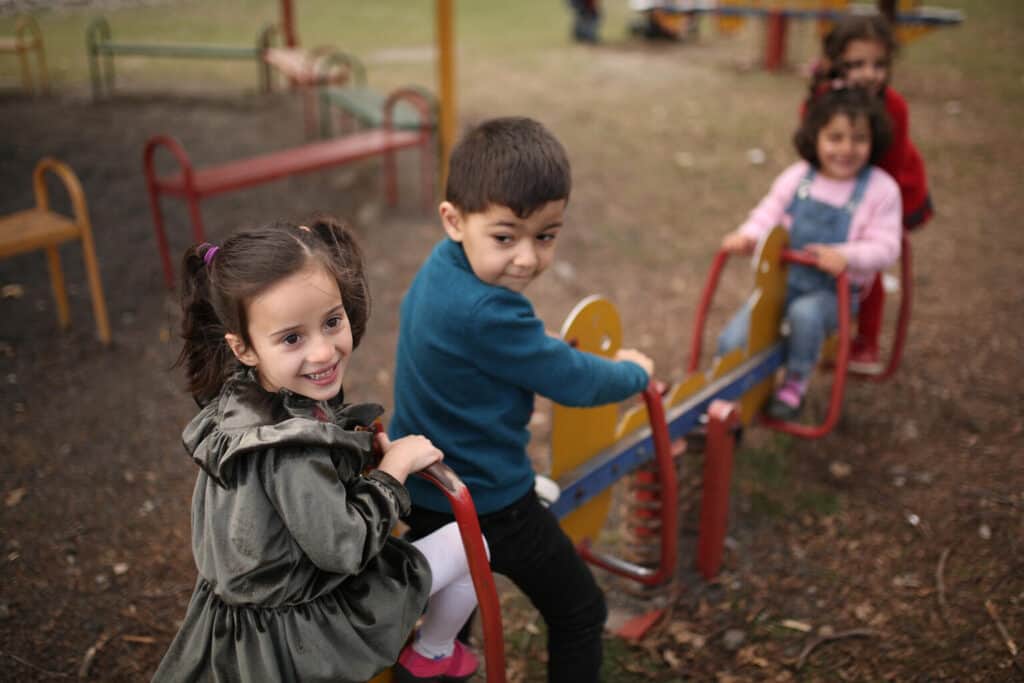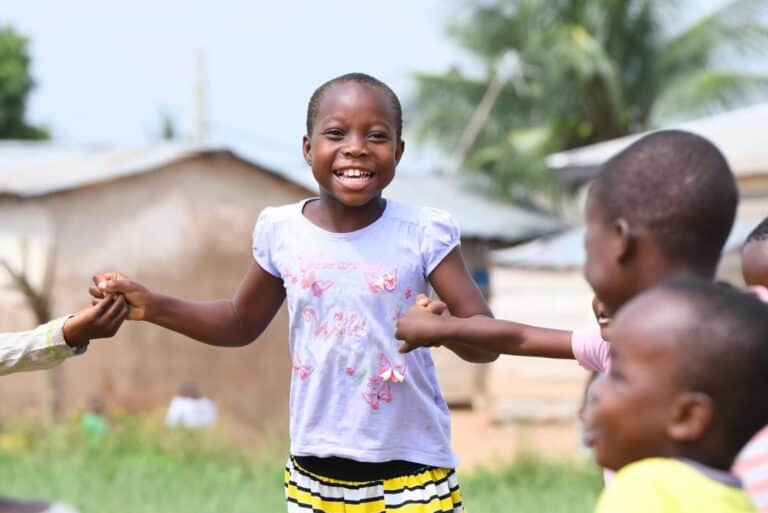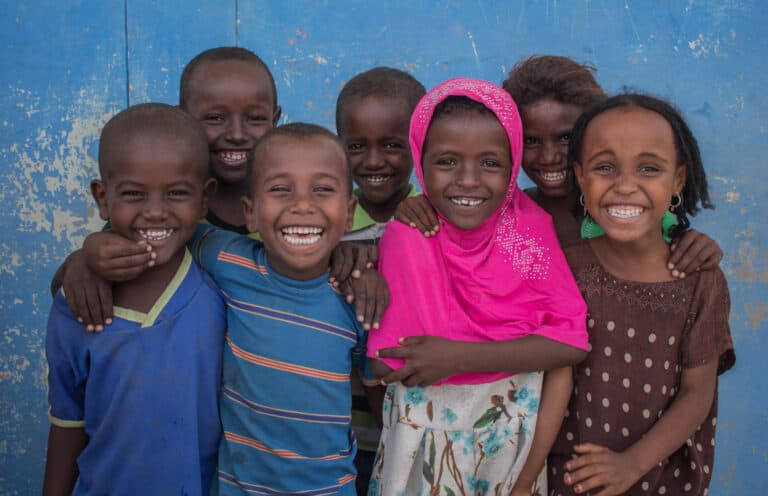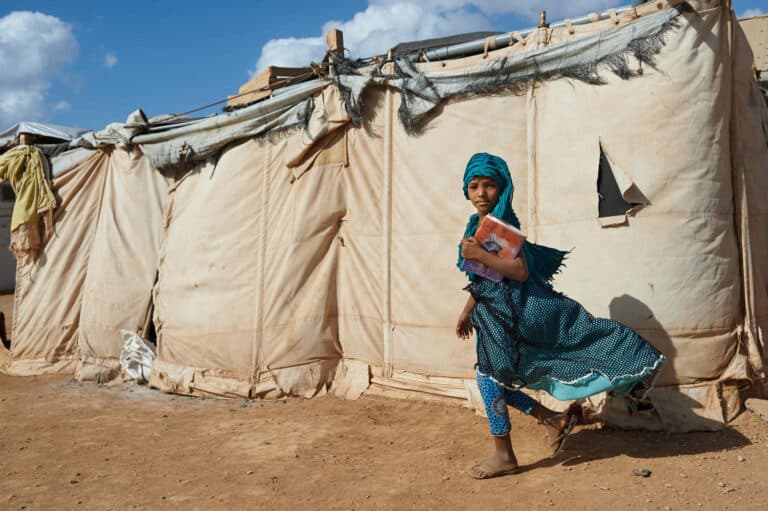Thriving in the first few years of life is the right of every child. It is also the foundation of future health, well-being and productivity, according to scientific evidence from multiple disciplines.
Growing recognition of the vital importance of early childhood development (ECD) is attested by its inclusion in the 2015 Sustainable Development Goals (SDGs). SDG target 4.2 seeks to “ensure that, by 2030, all girls and boys have access to quality early childhood development, care and pre-primary education, so that they are well prepared for primary education.” Giving all children a good start in life is crucial for achieving other global goals as well, including eradicating hunger and poverty, living healthier lives, reducing inequality, fostering economic growth and building peaceful societies.
One indicator for target 4.2 is the “proportion of children 24 to 59 months of age who are developmentally on track in health, learning and psychosocial well-being,” disaggregated by sex. But while the target itself is straightforward, finding a way to measure it was not. Doing so involved a rigorous, five-year long methodological process, spearheaded by UNICEF.
Measuring early childhood development outcomes
Measuring early child development is extraordinarily complex since the progress of young children is multidimensional – with physical, cognitive, emotional, behavioural and other components. Nor do children develop in lockstep. Moreover, any measure that was agreed upon had to be short and simple, since it was mainly intended for use in multi-topic household surveys in countries already overwhelmed by the new monitoring requirements established by the SDGs. What’s more, the measure had to be culturally appropriate and applicable for capturing child development worldwide.
Traditional approaches to measuring early childhood development have been based on individual screening and/or diagnostic tests administered by highly trained professionals. These are inappropriate for the type of large-scale population monitoring needed for the SDGs. In contrast, the tool that was eventually developed – the Early Childhood Development Index 2030, or ECDI2030 – consists of 20 questions a child’s mother or primary caregiver can answer in about three minutes. The questionnaire replaces a 10-question module that had been included since 2009 in the standard Under-5 Questionnaire in the UNICEF-supported Multiple Indicator Cluster Surveys (MICS).
The ECDI2030 covers the three domains of early childhood development included in the SDG indicator: learning, psychosocial well-being and health. The goal was to capture the essence of these domains in as few questions as possible (see figure below), in order to make the final measure simple and cost-efficient for countries to use. Questions in the psychosocial well-being domain, for example, focus on a child’s emotional and social skills as well as their tendency – or not – to internalize or externalize their emotions.
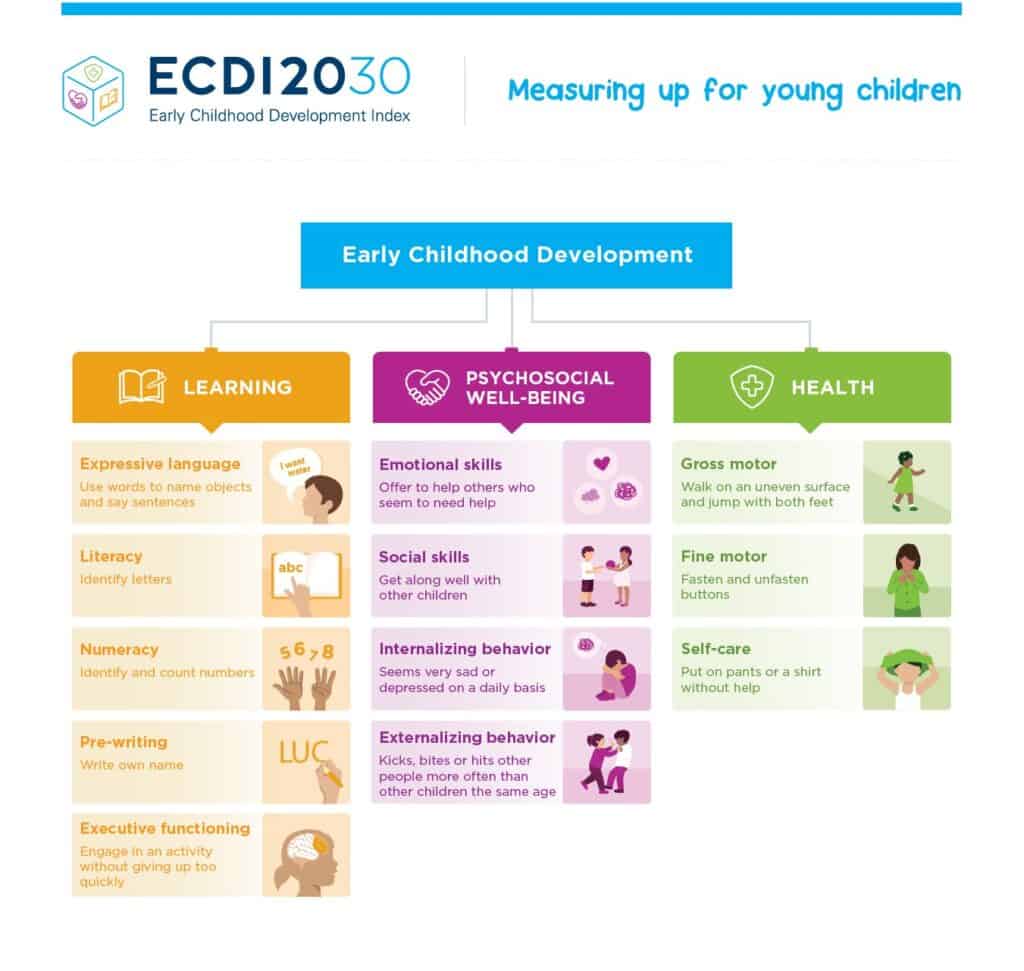
To ensure that the questions could be readily understood and were relevant and valid across local contexts, cognitive and methodological testing was carried out in eight countries. The entire process involved extensive consultations with international experts, partner agencies and national statistical authorities and was overseen by the Inter-Agency and Expert Group on ECD Measurement. Support along the way was provided by a technical advisory group of academics and researchers as well as practitioners with expertise in assessing child development around the world.
The ECDI2030 is accompanied by a complete package of implementation tools, translated into multiple languages. UNICEF has also produced a dedicated technical manual and several academic articles documenting the methodological process behind the development and validation of the measure.
Fostering data availability
In 2019, the ECDI2030 was recognized as the measure for monitoring and reporting on SDG 4.2.1. It took another two years, amid the COVID-19 pandemic, for three countries – Eswatini, Nigeria and Viet Nam – to integrate the module into national surveys as part of the sixth round of MICS (MICS6) and collect the relevant data; up to 15 other countries are in various stages of MICS6 implementation. Beginning in 2023, the ECDI2030 module will become a standard part of MICS7. It has also been included in several Demographic and Health Surveys planned for this year and in other national data collection efforts, including in Indonesia, Mexico and Sri Lanka. In response to COVID-19, a pilot study supported by the UNICEF country office in Nepal demonstrated the viability of administering the ECDI2030 module by phone.
To encourage uptake of the module, efforts have also focused on capacity-building. UNICEF is partnering with the United Nations Statistical Institute of Asia and the Pacific to conduct a virtual training workshop on the ECDI2030 in May 2022 for national statistical offices in the region. UNICEF is also organizing a virtual training workshop on collecting data for ECD-related indicators, including the ECDI2030, through household surveys.
The big picture
The methodological intricacy of developing the ECDI2030 has been an exciting advancement for the field of ECD measurement at the population level. Still, it is only a first step. More important is what countries do with it. The ECDI2030 will enable countries to gather the data needed to monitor progress towards the SDG target. At the same time, these data can be used to develop evidence-informed policies and programmes that can make a real difference in the lives of children.
One of the remaining challenges is enabling countries to track developmental progress in children aged 0 through 6. This will require stronger alignment across existing instruments. Accordingly, UNICEF, the World Health Organization and the World Bank have come together to explore ways to link various measurement efforts for assessing child development up to 7 years of age.
Meanwhile, UNICEF continues to support countries in analysing collected data, interpreting the results, and disseminating findings to a broad audience so they can be strategically used in advocacy and programming. Such data are critical to devising effective policies, identifying gaps in programmes and services for young children, and scaling up successful interventions to accelerate progress.
Learn more about the ECDI2030 and access implementation tools in seven languages.
